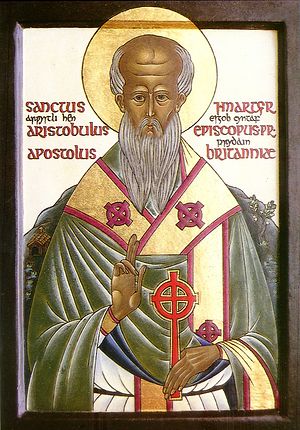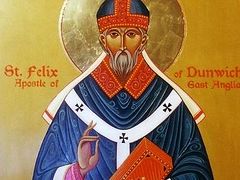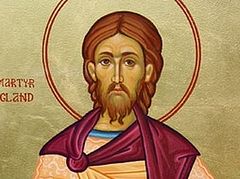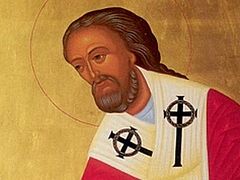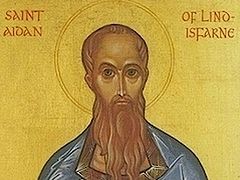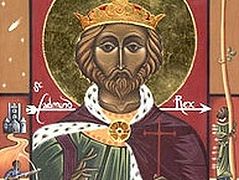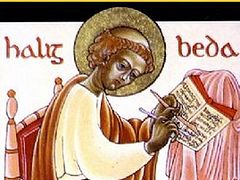The Holy Apostle Aristobulus of the Seventy was born on Cyprus. He and his brother, the holy Apostle Barnabas of the Seventy, accompanied the holy Apostle Paul on his journeys. Saint Aristobulus is mentioned by the Apostle Paul in the Epistle to the Romans (Rom 16:10).
Saint Paul made Aristobulus a bishop and sent him to preach the Gospel in Britain, where he converted many to Christ. He endured the torments and malice of the pagans, and eventually baptized them.
Saint Aristobulus died in Britain among the people he had evangelized. His memory is celebrated on October 31 and also on the Synaxis of the Seventy Apostles January 4.
The Orthodox Church in America
Archpriest Andrew Phillips writes of the apostle Aristobulus in Orthodox England (vol. 8,4):
From Cyprus and one of the Seventy, he [the Apostle Aristobulus] was the brother of St Barnabas and is mentioned in Romans 16, 10. Some say that he was the father-in-law of the Apostle Paul. In any case, the Eastern Lives of the Saints quite specifically affirm that he was sent by the Apostle Paul to preach in Britain, inhabited by “a very warlike and fierce race,” in particular in the Isles of Scilly and Cornwall. Here he toiled much and suffered from cruel and unbelieving people. He was beaten, dragged as a criminal along streets and suffered misfortune, malice and mockery. Finally, local people accepted from him the Light of Christ. He taught them the Faith, baptised them, built churches and ordained priests and deacons, reposing in Britain. Some sources add that he was also martyred in Britain, but we do not need to believe the Cypriot folklore that he was eaten by cannibals. Accounts of these events can be found in the writings of Haleca, Bishop of Augusta, and Dorotheus of Tyre.
As regards folk memory, the British Achau, or Genealogies of the Saints, say that St Aristobulus was known as Arwystli Hen (the Elder) and that he came to Britain with others, Jewish converts, and also his own son, called ‘Manaw’. An area on the River Severn in what was Montgomeryshire in Wales used to be called ‘Arwystli’, for this was said to be the site of his martyrdom. St Aristobulus is feasted on 15/28 March in the Greek Churches and 16/29 March in the other Orthodox Churches.

